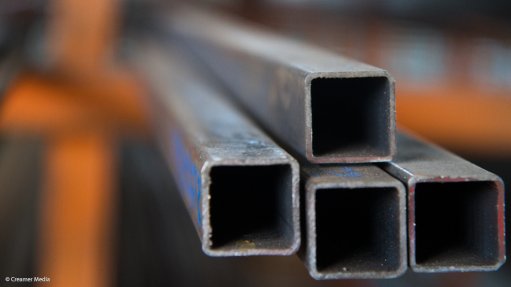
Photo by: Creamer Media
The National Employers’ Association of South Africa (Neasa) says government is not helping anyone by endeavouring to keep ArcelorMittal South Africa’s (AMSA’s) Saldanha Steel Works plant open.
“Over and above the 20% duties preventing the downstream steel industry from importing cheaper and better quality steel, the Department of Trade, Industry and Competition (DTIC) is taking its efforts to save an unsustainable enterprise to an unprecedented level,” Neasa CEO Gerhard Papenfus stated in a release on Wednesday.
The DTIC had engaged with AMSA’s management on support that could reduce costs in respect of electricity, water and rail tariffs, which will provide “considerable cost savings” to Saldanha Steel.
However, Neasa felt that there was no cost saving involved and that someone was paying along the line.
“The DTIC solution is merely a subsidy. In the case of protectionist duties, the steel downstream industry is bearing the brunt.
“Cheaper electricity, water and transport amounts to a ‘double whammy’ for the downstream industry. For the taxpayer, a subsidy amounts to keeping yet another deceased institution on life support,” Papenfus said.
He added that unless an institution could sustain itself and prove its worth, it was doomed to fail.
AMSA declared that the Saldanha Steel plant could not be run profitably and that the possibility of an outside buyer coming to its rescue was remote.
“But, surprisingly, there was talk about just such a buyer, which raises concern that the plant will be offered with the advantage of protectionist duties, cheaper power, rail and water.
“If this is the case, South Africa will be locked in a deal that will have disastrous consequences for the steel industry and South Africans,” Papenfus noted.
He believes AMSA is a strategic liability instead of a strategic asset, stating that unless a prospective buyer can prove that the business will contribute to South Africa without protectionist duties and subsidies, the same scenario will play out.